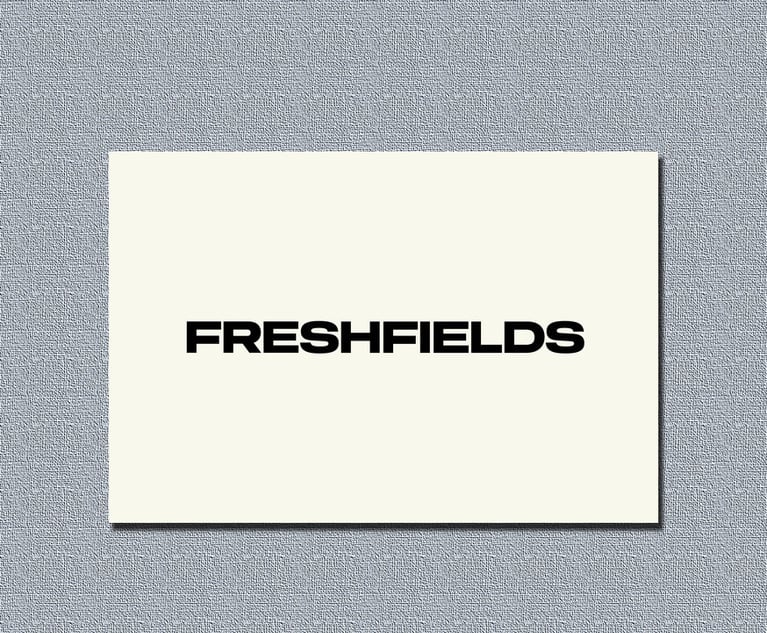Michael Jordan Scores Again in China, but Battle Goes on
The basketball legend scored another win against a Chinese sportswear company in China but his legal battle against the company isn't over.
April 20, 2020 at 11:57 AM
4 minute read
Basketball legend Michael Jordan has won another case in China's top court against a Chinese sportswear company that Jordan had accused of infringing his trademark rights.
Last month, the Supreme People's Court ruled that Qiaodan Sports' registered trademark of Jordan's name in Chinese characters accompanied by a silhouette resembling Jordan's famous "Jumpman" logo violated Jordan's trademark rights and should be revoked. The court overturned three decisions favorable to Qiaodan issued by the State Administration for Industry and Commerce's trademark appraisal committee and two lower courts, both of which had previously ruled that "Jordan" is a common American surname and that the trademark did not explicitly reference the former National Basketball Association star.
However, Jordan's protracted legal battle in China against Qiaodan Sports is not over. Hearings in a separate civil case were held eight years ago, but the court in that case has still not issued a ruling.
The decision issued last month is the latest in Jordan's legal action against Qiaodan, which began in 2012 when he filed to invalidate about 80 trademarks registered by the local sportswear company. Although most of the trademarks have been upheld by Chinese courts, the Supreme Court has ruled in favor of Jordan in several instances. In 2016, it ruled that Qiaodan's trademark of Jordan's name in Chinese characters violated Jordan's prior rights and should be revoked.
In the latest ruling, the Supreme Court repeated some of the judgments it made in its 2016 decision, including its opinion that Jordan has the right to his transliterated name in Chinese characters, which is widely associated with him in China. The Supreme Court ruled again that Qiaodan infringed on that right by registering its offending trademark, which may easily mislead consumers into thinking that Jordan is associated with the company's products.
Jordan was represented by Beijing-based partners Fang Qi and Tian Tian of Fangda Partners.
The case has received a lot of attention in China due to the popularity of basketball and of Michael Jordan in the country. On Weibo, China's Twitter-style microblogging platform, users have been vocal in their support for Jordan, with many of the top comments on Qiaodan's statement in response to the latest ruling very critical of the company.
However, the Supreme Court rejected Jordan's argument that the silhouette part of the trademark violates his image rights on the basis that the silhouette does not have any facial features that refer to Jordan. This is consistent with previous rulings rejecting Jordan's claims to other trademarks held by Qiaodan, including the romanization of his name in Chinese, "qiao dan," because it does not sufficiently refer to Jordan.
Despite his latest win over the right to his name in Chinese, Jordan's dispute with Qiaodan is still ongoing. The parties are still waiting for a decision by a Shanghai court in relation to a separate case filed by Jordan in 2013, in which he accused Qiaodan of infringing his naming rights and in which he demanded 50 million yuan ($7 million) in damages.
"The Shanghai case is the most critical because Jordan is seeking an injunction against Qiaodan's future use of all the trademarks," an intellectual property partner familiar with the case said. "The Supreme Court decisions are a good foundation, but they do not touch on the core of the dispute, which is not the validity of the marks but the right to use those marks."
The purpose of Jordan trying to invalidate the marks at the Supreme Court is to increase his chance of winning in the civil case in Shanghai, the partner said. He explained that lawyers in China typically pursue two parallel courses of action in trademark disputes: They seek the invalidation of offending trademarks and at the same time, they make the case that the plaintiff's rights have been infringed.
The Shanghai court has been very slow to issue a decision on the civil case, however. That is likely because it is worried about the ramifications of ruling against the local company, the partner said.
"[The court] is worried about the impact on a local business that employs so many people and has so many stores."
|Related Stories:
This content has been archived. It is available through our partners, LexisNexis® and Bloomberg Law.
To view this content, please continue to their sites.
Not a Lexis Subscriber?
Subscribe Now
Not a Bloomberg Law Subscriber?
Subscribe Now
NOT FOR REPRINT
© 2025 ALM Global, LLC, All Rights Reserved. Request academic re-use from www.copyright.com. All other uses, submit a request to [email protected]. For more information visit Asset & Logo Licensing.
You Might Like
View All
The Week in Data Jan. 2: A Look at Legal Industry Trends by the Numbers

Chair of Montgomery McCracken Decamps for Morgan Lewis

Patent Disputes Over SharkNinja, Dyson Products Nearing Resolution
Law Firms Mentioned
Trending Stories
- 1Miles & Stockbridge Adds 31 Lawyers From Merger
- 2Split 4th Circuit Revives Constitutional Challenge to Child Vaccine Mandate
- 3Lack of Available Auto Safety Features Does Not Equal Products Liability Act Violation, NJ Appeals Court Says
- 4Riding High, Texas Roadhouse Gives Legal Chief 3-year Contract Extension,15% Salary Boost
- 5New York Times Moves for $100K in Attorney Fees Against Dfinity Foundation
Who Got The Work
Michael G. Bongiorno, Andrew Scott Dulberg and Elizabeth E. Driscoll from Wilmer Cutler Pickering Hale and Dorr have stepped in to represent Symbotic Inc., an A.I.-enabled technology platform that focuses on increasing supply chain efficiency, and other defendants in a pending shareholder derivative lawsuit. The case, filed Oct. 2 in Massachusetts District Court by the Brown Law Firm on behalf of Stephen Austen, accuses certain officers and directors of misleading investors in regard to Symbotic's potential for margin growth by failing to disclose that the company was not equipped to timely deploy its systems or manage expenses through project delays. The case, assigned to U.S. District Judge Nathaniel M. Gorton, is 1:24-cv-12522, Austen v. Cohen et al.
Who Got The Work
Edmund Polubinski and Marie Killmond of Davis Polk & Wardwell have entered appearances for data platform software development company MongoDB and other defendants in a pending shareholder derivative lawsuit. The action, filed Oct. 7 in New York Southern District Court by the Brown Law Firm, accuses the company's directors and/or officers of falsely expressing confidence in the company’s restructuring of its sales incentive plan and downplaying the severity of decreases in its upfront commitments. The case is 1:24-cv-07594, Roy v. Ittycheria et al.
Who Got The Work
Amy O. Bruchs and Kurt F. Ellison of Michael Best & Friedrich have entered appearances for Epic Systems Corp. in a pending employment discrimination lawsuit. The suit was filed Sept. 7 in Wisconsin Western District Court by Levine Eisberner LLC and Siri & Glimstad on behalf of a project manager who claims that he was wrongfully terminated after applying for a religious exemption to the defendant's COVID-19 vaccine mandate. The case, assigned to U.S. Magistrate Judge Anita Marie Boor, is 3:24-cv-00630, Secker, Nathan v. Epic Systems Corporation.
Who Got The Work
David X. Sullivan, Thomas J. Finn and Gregory A. Hall from McCarter & English have entered appearances for Sunrun Installation Services in a pending civil rights lawsuit. The complaint was filed Sept. 4 in Connecticut District Court by attorney Robert M. Berke on behalf of former employee George Edward Steins, who was arrested and charged with employing an unregistered home improvement salesperson. The complaint alleges that had Sunrun informed the Connecticut Department of Consumer Protection that the plaintiff's employment had ended in 2017 and that he no longer held Sunrun's home improvement contractor license, he would not have been hit with charges, which were dismissed in May 2024. The case, assigned to U.S. District Judge Jeffrey A. Meyer, is 3:24-cv-01423, Steins v. Sunrun, Inc. et al.
Who Got The Work
Greenberg Traurig shareholder Joshua L. Raskin has entered an appearance for boohoo.com UK Ltd. in a pending patent infringement lawsuit. The suit, filed Sept. 3 in Texas Eastern District Court by Rozier Hardt McDonough on behalf of Alto Dynamics, asserts five patents related to an online shopping platform. The case, assigned to U.S. District Judge Rodney Gilstrap, is 2:24-cv-00719, Alto Dynamics, LLC v. boohoo.com UK Limited.
Featured Firms
Law Offices of Gary Martin Hays & Associates, P.C.
(470) 294-1674
Law Offices of Mark E. Salomone
(857) 444-6468
Smith & Hassler
(713) 739-1250










